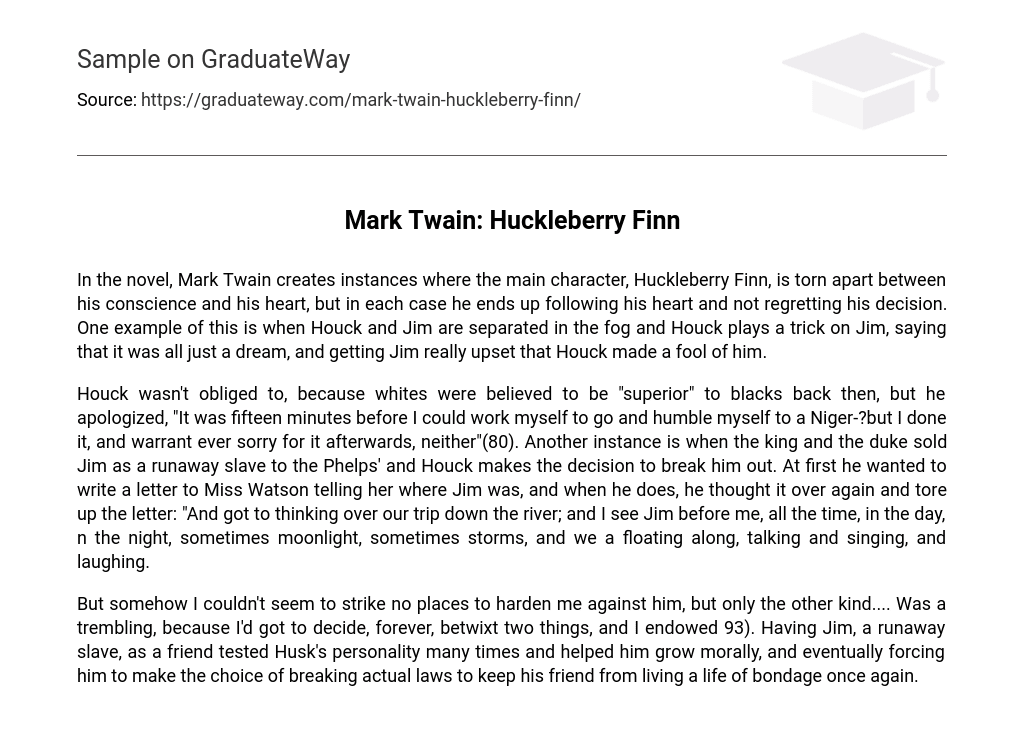In the novel, Mark Twain creates instances where the main character, Huckleberry Finn, is torn apart between his conscience and his heart, but in each case he ends up following his heart and not regretting his decision. One example of this is when Houck and Jim are separated in the fog and Houck plays a trick on Jim, saying that it was all just a dream, and getting Jim really upset that Houck made a fool of him.
Houck wasn’t obliged to, because whites were believed to be “superior” to blacks back then, but he apologized, “It was fifteen minutes before I could work myself to go and humble myself to a Niger-?but I done it, and warrant ever sorry for it afterwards, neither”(80). Another instance is when the king and the duke sold Jim as a runaway slave to the Phelps’ and Houck makes the decision to break him out. At first he wanted to write a letter to Miss Watson telling her where Jim was, and when he does, he thought it over again and tore up the letter: “And got to thinking over our trip down the river; and I see Jim before me, all the time, in the day, n the night, sometimes moonlight, sometimes storms, and we a floating along, talking and singing, and laughing.
But somehow I couldn’t seem to strike no places to harden me against him, but only the other kind…. Was a trembling, because I’d got to decide, forever, betwixt two things, and I endowed 93). Having Jim, a runaway slave, as a friend tested Husk’s personality many times and helped him grow morally, and eventually forcing him to make the choice of breaking actual laws to keep his friend from living a life of bondage once again.





